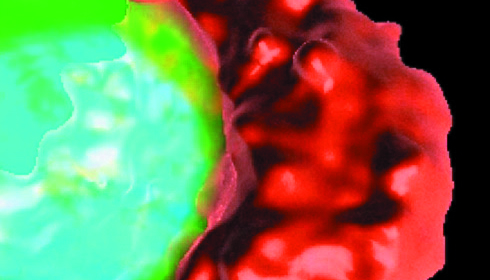
Breakthrough Study Paves Way for Enhanced Cancer Combination Therapies
Experts at the Hollings Cancer Centre have conducted a new study that may lead to improved cancer combination therapy. By investigating the processes by which cancer cells resist hydroxychloroquine, the team intends to develop medications that, when combined with it, can prevent resistance and improve therapeutic outcomes.
Hydroxychloroquine, a conventional antimalarial medicine, has shown promise as a cancer treatment because of its effects on autophagy, a cellular process that cancer cells frequently use to survive.
However, resistance to hydroxychloroquine in cancer cells remains a significant issue, limiting its efficacy.
In response to this issue, a team at Hollings, under the leadership of researcher Delaney, investigated the mechanisms cancer cells employ to combat hydroxychloroquine, with the aim of identifying potential targets for future treatments.
"Our study has identified potential mechanisms that we will need to target with a second drug to prevent resistance against hydroxychloroquine," said Delaney, emphasizing an important step in understanding how to enhance hydroxychloroquine's impact on cancer cells.
The study implies that combining hydroxychloroquine with medications that inhibit cell division, metabolism, or export pathways may improve therapy efficacy.
By attacking cancer cells via various paths, the combination may limit their ability to adapt, thereby lowering their resistance. Drugs that alter cell metabolism, for example, may deprive cancer cells of the energy required to maintain resistance mechanisms, whereas cell division inhibitors may hamper cell growth and reproduction.
Beyond combination therapies, the study emphasizes the necessity of customized treatment options. According to Delaney, tumors that have specific abnormalities in cell division, metabolism, or export pathways may be more sensitive to hydroxychloroquine. Patients with tumors that already exhibit deficiencies in these pathways may respond more strongly to hydroxychloroquine-based treatments.
"We certainly want to understand which patients would see the most benefit and get the best result from these trials," Says Delaney.
This understanding is critical because it could lead to more personalized cancer treatment protocols that match patients with treatments tailored to their cancer's specific biological properties. The Delaney Lab's discoveries not only increase our understanding of hydroxychloroquine's impact on cancer cells but also serve as a platform for developing new, more effective cancer treatments.
Scientists want to increase the drug's potential by discovering and addressing specific causes of resistance, making it a viable option for a broader variety of cancer patients. In a larger sense, this study marks a step forward in the repurposing of current medications for cancer treatment.
This study demonstrates the adaptability of medications originally developed for other diseases to address the unique problems of cancer treatment. Because cancer cells frequently display amazing adaptability and resistance, understanding these pathways is critical for creating long-term therapy.
Finally, the Hollings team's study may transform cancer therapy tactics by developing hydroxychloroquine-based medicines customized to specific patients' needs. This precision approach not only maximizes the drug's therapeutic advantages but also reduces potential resistance, representing a significant leap in the fight against cancer.